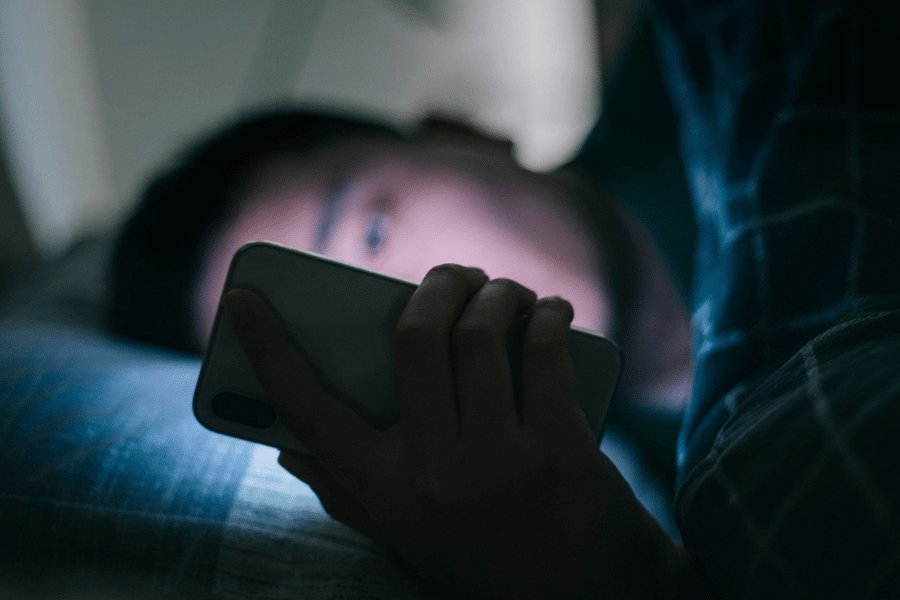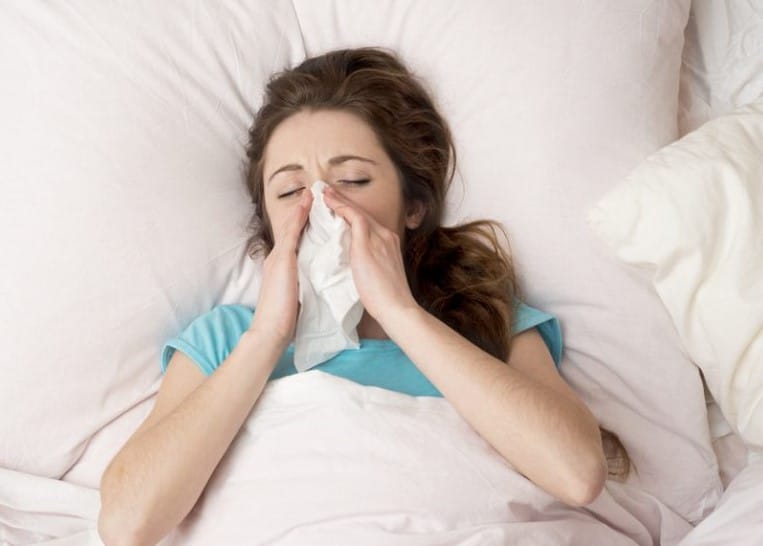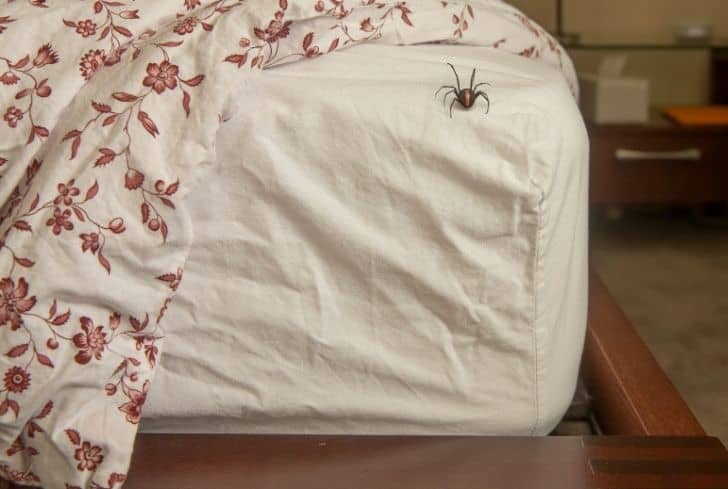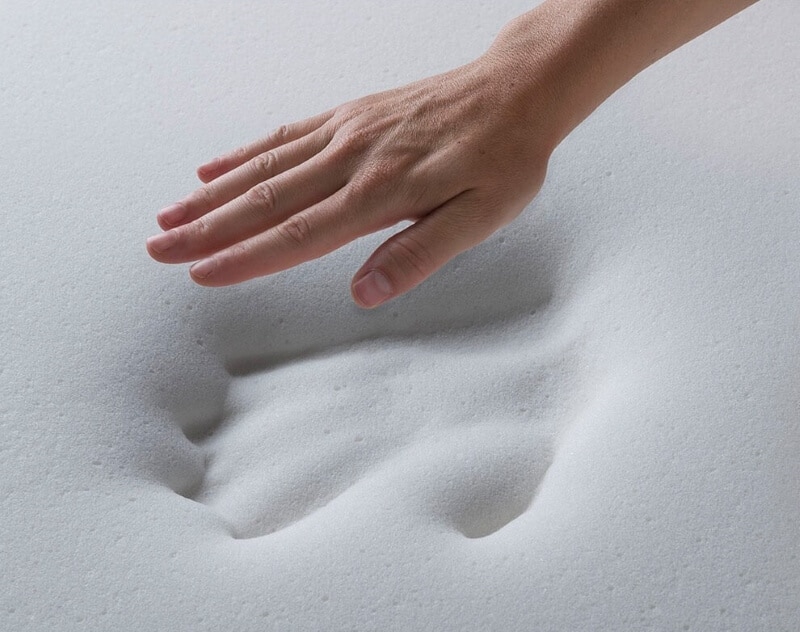

Have you ever wondered – what is sleep? Sleep is absolutely essential for human survival, allowing us to heal and recharge in both our body and our mind. Without enough sleep, we can get unwell, gain weight and see our physical and mental health deteriorate. In extreme cases, you can even start to hallucinate Trusted Source How Long Can You Go Without Sleep? | Healthline The longest recorded time without sleep is approximately 264 hours, or just over 11 consecutive days. Although it’s unclear exactly how long humans can survive without sleep, it isn’t long before the effects of sleep deprivation start to show. www.healthline.com after complete sleep deprivation for a few days.
The great thing is that by understanding sleep more, you can get more sleep and better quality sleep too. In this article, we’ve collected all the information you could ever want about sleep and more so that you can transform your own zzz’s and get the kind of high-quality, restful sleep you deserve.
Let’s take a closer look at all things sleep:
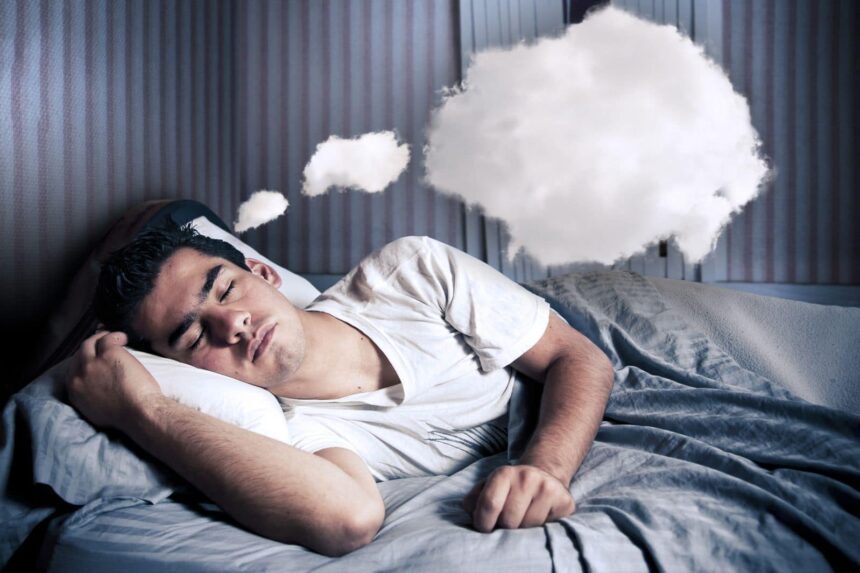
Sleep is something that we, as humans, do naturally from the moment we are born. In fact, we actually start sleeping before we are born. Healthline tells us Trusted Source Do Babies Sleep in the Womb | Healthline During pregnancy you may wonder whether your baby’s movements mean that they’re awake and aware. There is awareness, but in reality, your baby spends most of their time in the womb doing something you probably wish you could do more of – sleeping. www.healthline.com that babies spend most of their time sleeping in the up to 40 week gestation time, taking 95% of that snuggly womb time to snooze, and then bouncing on your bladder for 5% of the rest of the time.
From the moment we come into the world, we learn that there is time for sleep and time for being awake. Although, as we grow up, the reasons we sleep change. Babies sleep a lot because they use so much energy growing, teenagers are also growing through a growth spurt, and puberty uses up a lot of energy, too, which is why adolescents sleep so much. As adults, it then levels out until we get older, producing less growth hormone and therefore less melatonin, so we need less sleep and more disturbed sleep.
When it comes to the sleep definition itself, we know it helps us to rest, but what actually is sleep. What is our body doing when it happens?
What we do know is that various areas of the brain are part of the sleep process:
Hypothalamus – a tiny part of the brain that is filled with nerves that relate to our sleep and arousal.
Suprachiasmatic Nucleus (SCN) – this part of the brain sits inside the hypothalamus and contains thousands of cells. These cells get vital light exposure data from our eyes, helping to control the rhythm of your behavior based on that data. Even those with sight loss or limitations have some degree of sensing light, so their SCN remains intact. Those who do have damage to their SCN or no light detection may struggle because their circadian rhythm cannot operate without light exposure data.
Brain Stem – at the bottom of the brain is the brain stem which contains the midbrain, pons, and medulla. This part of the brain is directly in contact with the hypothalamus and controls the bit between when we are awake and when we are asleep. Within both the brainstem and hypothalamus, GABA is produced, which subdues and relaxes arousal, an essential factor in getting to sleep. This part of the brain is also strongly related to REM sleep (see below), essentially controlling our bodies and stopping us from literally physically going through the motions of our dreams.
Thalamus – takes information from all our senses to our cerebral cortex. It doesn’t do much when we sleep to forget what we feel, smell, see and sleep. When we go into REM, though, the thalamus comes to life and lets our cerebral cortex receive all the information we get in our dreams, like what we see and hear.
Cerebral Cortex – goes all around the brain, has a lot to do with how we make and process memories and interpret information exposed to.
Pineal Gland – sits in between the right and the left half of the brain. It takes lots of data from the SCN and boosts the sleep hormone melatonin.
Basal Forebrain – sits at the lower frontal section and has lots of jobs relating to our waking and sleeping states.
Neurotransmitters – are all around the brain and body, and adenosine is a type of neurotransmitter. In the brain, adenosine depresses our central nervous system and subdues various bodily functions we do when we are awake.
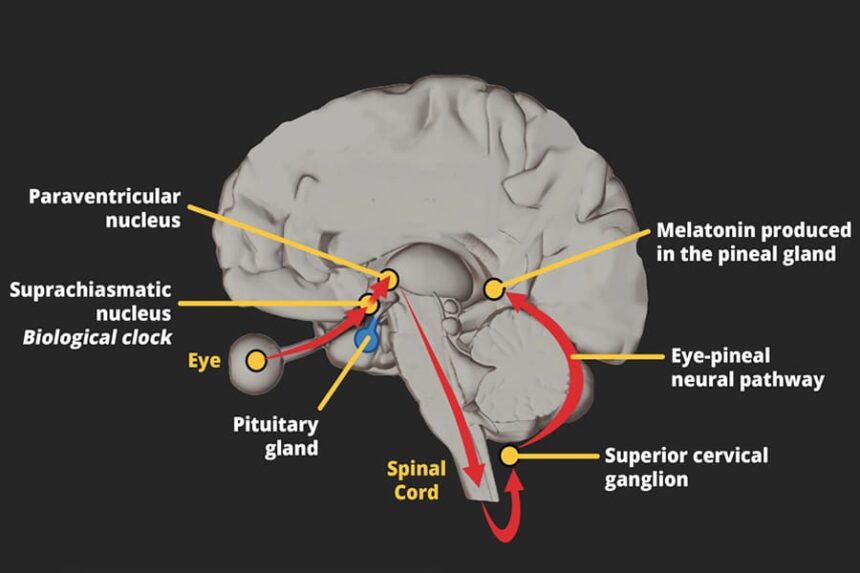
In addition to these processes by the brain, the heart and breathing rhythms change, and our temperature lowers.
Sleep is all of the above parts of the brain and body working together (plus various other mechanisms) to allow us to rest, recuperate and process our experiences.
It is essential to mention that sleep can be split across the day by some people. If you have wondered what is polyphasic sleep? It is where a person sleeps over more than two periods of time a day. Most people, however, go through the above physical processes of sleep with a monophonic sleep schedule, which is one batch of sleep per 24 hours.
As well as what is going on within us on a deeper, cellular level, there are more basic characteristics that we recognize as being signs a person is asleep, including:
Of course, we know the heart and brain are doing more, but the basic characteristics we look for in human behavior form part of the overall picture.
The Oxford Languages Dictionary defines sleep as “A condition of body and mind that typically records for several hours every night, in which the nervous system is relatively inactive, the eyes closed, the postural muscles relaxes, and consciousness practically suspended.”
It is important to understand that when we ask – what is sleep efficiency? It is to separate time spent in bed and time actually spent asleep. Just because you are in bed, does not mean you are sleeping, and there are specific criteria that define sleep far beyond the bedtime you might choose.
Medically, specific brainwave patterns, patterns of breathing, and heart rhythms are measured to define sleep and different sleep stages.
If you have been referred for any sleep study, you may wear a special apparatus that measures how you are sleeping. Some detect temperature, breathing, and heart rhythms (especially with sleep apnoea), and some go further into detail with what your brain is doing whilst you sleep. It depends on why you are having the sleep study and what needs to be tested and measured. However, with all these study types, it is with the various patterns and data acquired that doctors and specialists can determine when you are asleep and what is happening in your body.
When a person is asleep, they are, to a certain degree, unconscious of the things happening around them. As we mentioned above, the senses we use to switch off most of the time while we are asleep to shut off from the world around us. Despite this, we can still be aroused with a loud or bright stimulus like a thunderclap or lights being switched on. A person who is unconscious does not have the ability to be aroused in this way. There is no response to anything at all, and it can happen for a wide variety of reasons, including sedation, severe pain, brain hypoxia, or brain injury. It isn’t the same as an altered mental state where we have a different level of consciousness (like hypnosis or delirium), but we are still conscious in some way.
Sleep is vital for the body, and it is crucial to understand how far-reaching the effects of no sleep are when we think of sleep in relation to our health.
When we don’t get enough sleep, it is called sleep deprivation. This cannot happen when we are low on sleep once, but rather when we are deprived of sleep over a longer period. You get sleep deficiency if one or more of the following things happen:
To understand why the above are problems, let’s take a closer look at why sleep is important and why not getting enough of it, or enough good quality sleep is bad for you:
Sleep contains REM and non-REM types. REM stands for Rapid Eye Movement, and it is what we know to be the dreaming stage of sleep. Non-REM sleep is deep sleep, where we don’t dream. We go through cycles of these sleep types throughout the night.
How your body functions in the day depending on how much sleep you are getting and how much REM and non-REM sleep you are getting. How easily you get to sleep and the other things you do in your life that affect your sleep also impact your sleep function overall.
The circadian rhythm (see below) is the body’s natural body clock, which has a huge role in when you sleep and when you wake. The rhythm is attached to every single part of your body and lets you know when it is time to sleep and time to wake up. If this rhythm is disrupted or your routine or activities work against it, your sleep quality can be highly affected.
The effects of sleep deprivation on the body and mind are far-reaching. Frequently we can’t fully appreciate how detrimental a lack of sleep is to our waking life until we experience it ourselves, and the consequences become all too apparent.
At the very least, with sleep deficiency, you will feel tired and groggy during the day. The issues tend to get progressively worse than that, though, over time. You may have trouble with reaction times, studying, working, and you may even struggle with your personal relationships because of your energy levels and mood. Your health can also suffer as a result of sleep deprivation.
Let’s take a look at some of the effects of sleep deprivation on health:
Sleep Issues Can Cause Us to Gain Weight
A scientific study Trusted Source Meta-Analysis of Short Sleep Duration and Obesity in Children and Adults | NCBI Recent epidemiological studies suggest that short sleep duration may be associated with the development of obesity from childhood to adulthood. www.ncbi.nlm.nih.gov revealed that people of all ages can gain weight if they are sleep-deprived. This occurs for multiple reasons, but the study showed conclusively that obesity is related to sleep deprivation.
Without Enough Sleep, We Can’t Concentrate as Well
Sleep affects how we perform in all areas of our lives because it impacts how we can process and apply our thoughts and concentration. Whilst better sleep enhances these areas of our lives, a lack of sleep does the opposite, according to scientific studies. Trusted Source Cognitive benefits of sleep and their loss due to sleep deprivation | PubMed Sleep loss causes profound impairments in cognitive and behavioral performance. pubmed.ncbi.nlm.nih.gov
Men Can Struggle with Erectile Dysfunction
Sleep deprivation is known to contribute to erectile dysfunction and is listed as a common cause by medical sites and centers such as the Mayo Clinic. Trusted Source Erectile dysfunction - Symptoms and causes | Mayo Clinic In many cases, erectile dysfunction is caused by something physical. Common causes include sleep disorders, heart disease, etc. www.mayoclinic.org
Exercise Performance Is Negatively Affected
A study Trusted Source Poor sleep is associated with poorer physical performance and greater functional limitations in older women | PubMed Objectively measured poorer sleep was associated with worse physical function. Future research is needed to identify the underlying mechanisms for the association between poor sleep and functional decline. pubmed.ncbi.nlm.nih.gov showed that poor sleep is directly linked to a huge range of exercise and athletic performance issues, including reduced grip strength and slower walking. We know that better sleep can enhance athletic performance, so it makes sense that a lack of it would have the opposite effect.
Increased Heart Disease & Stroke Risk
Those who do not sleep enough every night are at a much higher risk of getting a stroke or heart disease than those who get over 7-8 hours of sleep every night. In addition, sleep apnea, a common reason for poor sleep, can also contribute to your risk of high blood pressure because it puts a significant strain on your heart and cardiovascular system.
Higher Rates of Depression
Depression is a common cause of sleep deprivation because the condition, or medication for the condition, affects our ability to sleep. A lack of sleep can also cause us to feel depressed and may contribute to poor mental health. If you’re struggling to know whether you are depressed or sleep-deprived, there are lots of ways to tell the two conditions apart, including these different symptoms:
| Sleep Deprivation | Depression |
|
|
Of course, all of these symptoms can merge and feel unclear, especially when you’re in the thick of them. If you are unsure about your mental health at any stage and you need help, please reach out and speak to your doctor so that you can get a diagnosis and so things can start to improve.
Risk of Type 2 Diabetes
A sleep restriction study Trusted Source Impact of sleep debt on metabolic and endocrine function | PubMed Sleep debt has a harmful impact on carbohydrate metabolism and endocrine function. The effects are similar to those seen in normal ageing and, therefore, sleep debt may increase the severity of age-related chronic disorders. pubmed.ncbi.nlm.nih.gov showed that lower levels of sleep can begin to create the signs of prediabetes. Perhaps relating to the obesity risk, poor sleep habits are also known to affect an increase in the risk of type 2 diabetes.
Immune Function Is Decreased
Those with poor sleep quality and sleep deprivation were more likely to catch a cold than those who get high-quality sleep in acceptable amounts. There may be links because our body works hard to heal and repair itself when we sleep, and the less time it gets to do that, the weaker our body is when it comes to fighting off viruses and infections.
Higher Levels of Inflammation
Studies tell us Trusted Source Sleep, immunity and inflammation in gastrointestinal disorders | NCBI Research into sleep and its associated health abnormalities has had a relatively recent surge, and sleep quality has been shown in many investigations to be an important, if not essential element of good health. www.ncbi.nlm.nih.gov that low-quality sleep can cause all kinds of issues with inflammation, including a link with IBD (Inflammatory Bowel Disease). Sleep issues are so strongly linked with inflammation. In fact, many medical experts even use sleep analysis to determine how a patient may experience their inflammatory issues and respond to treatment over time.
Contributions to Loneliness
The effect of sleep on socializing is far-reaching and may eventually lead to feelings of loneliness and social isolation.
Multiple studies point to the fact that those struggling with sleep can find difficulty in social interactions. The problem could be caused by the person having low energy, a lack of self-care or compassion, or even mental health issues caused by sleep deprivation.
Eventually, these issues then cause a person to feel lonely and isolated, which has its own consequences and negative effects on health.
The above reasons are just some of the reasons that sleep is so important for the body. Great amounts of it (and in high quality) give us better focus, happiness, energy, and the ability to deal with everyday life. When we struggle with sleep deprivation, the effects on our bodies and mind are far-reaching. Those effects then impact our social lives, career, self-care, physical health, mental health, and ability to thrive.
When we ask – what is a healthy amount of sleep? It is essential to know that there is no one answer for every person because everyone is different.
The amount of sleep that you need is different depending on your age and lifestyle. There is no specific number that is right for anybody. However, there are average amounts of sleep recommended or expected depending on your age:
Babies
Babies sleep for up to 95% of the time in the womb and then for around 18 hours a day while developing and growing. This sleep is often in a cycle of being awake, eating, and then sleeping and may not have any specific time pattern for the first year.
Teenagers
Children of a school-age and especially adolescent age require around 9.5 hours of sleep. They are still developing and going through a lot of growth, particularly when puberty hits, so sleep is crucial.
Adults
Adults – on average – will sleep for about 7-9 hours every night, although everybody functions well on a different amount. As you get older, though, and move towards 65 onwards, your sleep is likely to be interrupted and of a lower quality because you produce less melatonin.
If you have ever wondered – what is the best sleep stage? The answer is, they are all critical.
There are a total of five sleep stages that give us a complete sleep cycle. Four of those cycles are non-REM (1, 2, 3 and 4), and then the fifth stage is REM sleep. Although we can guess what different stages are based on whether we are dreaming or not, only a special medical machine that measures brain activity can properly identify different sleep cycle stages. Additional monitoring, like heart, breathing, and muscular monitoring, can also help identify these different cycles.
Each different stage of the sleep cycle is important and contributes to a high quality of sleep. Let’s take a closer look at each stage and what happens to your body during that time:
When you enter sleep stage one, you are in a very light stage of sleep that could easily be broken with somebody speaking to you or a slight sound. Your muscles are the same, your breathing is the same, but your brainwaves are slowing down just a little.
During sleep stage two, you are slipping into a deeper sleep following from those early stages of slumber during sleep stage one. It would take more to wake you up during this stage, although it is still considered a lighter stage of sleep because you’re not in a deep sleep yet.
During sleep stages Three snd Four, you’re going into a deep sleep. Your brainwaves have slowed right down, your muscles have relaxed, your senses have been turned off to the outside world, and you’re unlikely to awaken as easily as with sleep stages one and two. With these stages of sleep, if the person is woken up, they may feel really rubbish and groggy and may even find that they aren’t as sharp or ‘with it’ as they would like for a short time.
Stage five of the sleep cycle is REM sleep which means Rapid Eye Movement, and it is the stage of sleep that we would connect with dreaming.
This sleep stage is highly different from the other four sleep stages physically, causing different behavior of the brain, heart, lungs, and muscles.
To have healthy sleep, a person needs to not only have enough sleep but healthy cycles. Ideally, you’ll pass through all five of these phases every 90 minutes or so, giving you adequate time in each cycle throughout the night.
There is also evidence to suggest that it is better for us to wake up at the end of a complete sleep cycle because we are well-rested, and we will not have been woken up during a deep sleep stage. There are multiple apps that can help you wake up during the right stage of sleep, some of which connect to fitness devices that track your heart rate and can better identify when you are in each stage of sleep.
There are two sleep phase types – REM and non-REM. Both types of sleep are incredibly different and important, and we need adequate amounts of both in order to feel healthy and well-rested in the day.
REM is also sometimes called paradoxical sleep and is the last phase of a full, five-phase sleep cycle. The reason it is called Rapid Eye Movement is that our eyes move around lots in different directions during this phase of sleep. Our senses are also engaged in that we experience them in our dreams because that part of the brain becomes active during this sleep phase.
REM is thought to secure memories, help us process the days’ events, and even helps us process strong emotions we are experiencing or have experienced.
During REM, lots of things happen to our body, including:
Interestingly, despite all this activity, we have a degree of sleep paralysis that is purposely applied by the body so that we protect ourselves from acting out our dreams and getting hurt. Some people do not get this paralysis during sleep as part of a sleep disorder, and it can put them in grave danger if they are not supervised or do not have their condition under control.
In your adult life, you will have about a quarter of your sleep time taken up by REM, and babies have over fifty percent of their sleep time taken up by REM.
During the various sleep cycles you go through overnight, your first REM cycle will be 10 minutes but will gradually get longer with each cycle.
Non-REM sleep occurs for four of the five sleep stages that we experience. We go through lighter stages, but the stages of 3 and 4 give us the chance to restore and properly rest. It is also called recovery sleep for this reason, so if you have wondered what is deep sleep and why does it matter? It is non-REM, and it is what our body does to restore itself.
During this sleep period, our damaged cells are replaced, and essential processes occur, such as when special memory preservation occurs and damaged cell eradication occurs.
The circadian and biological rhythms are fundamental when it comes to sleep and how our body knows when to be awake and when to sleep.
The circadian rhythm is a 24-hour cycle that we have built-in our bodies so that we know when to sleep and when to wake up. We also have many different types of circadian rhythms relating to different processes.
Various body parts follow these circadian rhythms, which are run by a natural clock we have in the brain, which takes its cues from the environment and natural cycles of the day, such as when the sun rises and when it sets.
The circadian rhythm affects sleep because the natural light exposure we have in the morning triggers our natural clock to set off all the processes we need to go through to wake up. At night the clock identifies the light fading, and we start to create melatonin as a response, which helps us fall asleep.
This is why artificial light, especially blue light, can negatively affect our ability to fall asleep.
Biological rhythms are the different rhythms in the body that control how we act and function. The circadian rhythm is one biological rhythm, and there are also three more.
| Circadian Rhythms | The 24-hour cycle that controls our sleeping cycle, as well as other behavioral and physical cycles |
| Diurnal Rhythms | The rhythm within us relating to day and night |
| Ultradian Rhythms | Shorter rhythms relating to our behavior and physiology are similar to the circadian rhythms but not 24 hours long |
| Infradian Rhythms | Rhythms in our body that last much longer than a day, such as the menstrual cycle |
Essentially biological rhythms are all the internal natural rhythms that we, as humans, have. Many people can suffer from disorders of those rhythms, including mood disorders relating to the seasons, sleep disorders because of night shift work, jet lag, and sleep disorders.
Here’s a big informative table for a deep understanding of the difference between biological and circadian rhythms:
| Biological Rhythms | Circadian Rhythms | |
| Definition | Natural changes in the way the body works occur over different periods of time. | 24-hour cycles that occur in the body, mind, or in our behavior. |
| Scope | Include the four rhythms above and is often called the natural clock, or master clock. | Specifically made to work on 24 cycles. |
| Functions | Reactions, blood pressure, sleeping, eating, hormones, heart and pulse rate, breeding, menstrual cycles, and more. | Organs, certain hormones, core body temperature, sleep and wake, metabolism, and more. |
| Disorders | Mood disorders like SAD (Seasonal Affective Disorder) and sleep disorders, to name a few. | Jet lag, sleep phase deprivation, shift work disorders, to name a few. |
| Awareness | Most people are not aware of this ‘master clock’ and do not benefit from an awareness of the biological rhythms. | The most well-known rhythm of the body and one that is written about primarily in general culture. |
| Light & Dark Cycles | Affected by the light and dark cycles, circadian rhythms are a biological rhythm, but it is not a defining aspect of the master clock. | Defined by the light and dark cycle because of the 24/7 rhythm and associations with sleep cycles. |
Multiple sleep disorders cause issues with sleep quality and affect how much sleep an individual can get. The main sleep disorders are sleep apnea, sleep paralysis, and sleep anxiety.
What is sleep apnea? Sleep apnea is when your breathing is not consistent during sleep, and instead, it stops and starts. It can make you feel very sleepy and may even increase your chances of increased blood pressure because it puts so much stress on the heart. There are multiple reasons that it can occur, such as obesity.
The most important thing is to seek diagnosis and treatment from a doctor if you have it because it can cause health issues and side effects, but it can mean you aren’t legal to drive in some countries.
What is sleep paralysis? Sleep paralysis is where you are unable to move at all during the lightest parts of sleep. It can be very frightening, making the person feel like they are being crushed, and it may come with intense paranoia that somebody is in the room with you. It usually occurs only once or twice in a lifetime, but it is a regular occurrence for some people.
What is sleep anxiety? Sleep anxiety is where a person experiences panic attacks, anxiety, or overwhelming fear about going to sleep. It often comes hand in hand with insomnia, as a person repeatedly tries to get to sleep, and when it doesn’t happen, they get more and more stressed about it.
Various different factors can affect sleep quality. Being aware of them gives you more control over your own sleep quality and your ability to get more of the sleep you deserve.
Here are different factors that affect sleep quality:
Chronic pain conditions like fibromyalgia and arthritis can cause a person to struggle with sleep. Various products such as sleep sprays, fibromyalgia pillows, and memory foam mattresses can help with these problems alleviating some of the issues preventing sleep.
If you’re looking at a good memory foam mattress to help with nighttime pain management, the Amerisleep AS5 is ultra-soft and relieves pressure on your joints and muscles. It’s a great choice if you want a mattress upgrade to help you get some well-deserved rest.
Alcohol depresses the nervous system, essentially sedating you into sleep. This is disruptive because it doesn’t actually improve your sleep quality. In fact, it causes you to have more deep sleep, so you aren’t getting as much REM sleep as you need. You are also prone to your breath slowing more than it should, and you can even experience sleep apnea symptoms as the alcohol relaxes your throat muscles as you sleep. Drugs can have a similar effect on your sleep or may impact it in other ways. This includes illegal substances, as well as prescribed medicines, and even caffeine.
Comfort, when we sleep, is essential. If we aren’t comfortable, our sleep can be disrupted substantially. Different aspects of your sleeping environment affect comfort levels, including:
Practicing good sleep hygiene and opting for a comfortable mattress – like the Roma Latex Mattress, which has over 300 five-star reviews – makes good sleep sense to envelop you in comfort when bedtime comes around.
Stress has a huge impact on our sleep quality. The more we are stressed, the less we can switch off and relax. Although mindfulness and meditation can help with stress, it is only by removing the cause of stress and strengthening our resilience to it that we can truly reduce its impact on our sleep quality.
Sleep disorders like those mentioned above can have a detrimental effect on sleep if they are not diagnosed or managed. There are also mental health disorders that can occur because of insomnia, or they may be a symptom of the disorder.
Going to bed and waking up at different times every day can cause your body clock to feel off. When you go to bed at the same time every night and get up at the same time, your body gets used to this routine and helps you go to sleep and wake up at those regular times.
Interestingly, lots of animals have entirely different sleeping amounts and styles to us humans. Cats and dogs lie down to sleep, but cats can sleep for 20 hours or more a day, especially when they get older.
Other animals have all kinds of interesting sleeping habits. A flamingo, for example, sleeps on one leg, whilst horses can lock their legs to a standing position while they sleep so they can escape predators quickly if danger comes around the corner.
Sea animals have some incredible adaptations so that they can sleep safely. Have you ever seen a grey seal nose up floating in the sea? They sleep in that position comfortably. A walrus will also float but only with other friends around so that somebody is always watching out for predators. Most unusually, porpoises, dolphins, and whales go to sleep one half of a brain at a time so that they can swim and get air while getting rest.
When it comes to dreaming, there are limited data to suggest that all animals dream. We know cats and dogs do because we, as owners, have seen them do it. Tests have been done on reptiles, birds, and other animals, and it seems most of them do dream to some degree. A study on rats Trusted Source Animals have complex dreams, MIT researcher proves | MIT News | Massachusetts Institute of Technology Study may advance understanding of human learning and memory. news.mit.edu even showed that they have very complex dreams, just like we do.
Of all the tests on animals that have been done regarding sleep, the most interesting, perhaps, are the tests done on jellyfish. The tests Trusted Source Jellyfish caught snoozing give clues to origin of sleep | Nature The brainless marine creatures are the simplest organisms known to seek slumber. www.nature.com show that jellyfish exhibit all kinds of behavior that suggest they are snoozing to some degree. There have even been suggestions they could dream!
What these studies and observations of animals’ sleeping habits tell us is not only more about the natural world but more about the origins of sleep, how old it is, and why we have evolved to do it. If jellyfish, which are the oldest multicellular animals in the world (500 million years) sleep, then how far back does the process of sleeping go in our world’s history?

Sleep is vital. It is worth the time and effort to ensure we get it in abundance and quality to leave us feeling refreshed every day. By understanding more about sleep, we can understand ourselves, our needs, and the changes that we should make to improve this aspect of our health.
Perhaps you need to get some therapy; maybe you need to visit the doctor; maybe you need a new mattress – everybody is different.
The best thing is, you now know so much more than you did before you came to this page today. By reading this article, you are now absolutely brimming with answers to the all-important question – what is sleep?
Sleep is that golden chain that ties health and our bodies together. – Thomas Dekker
